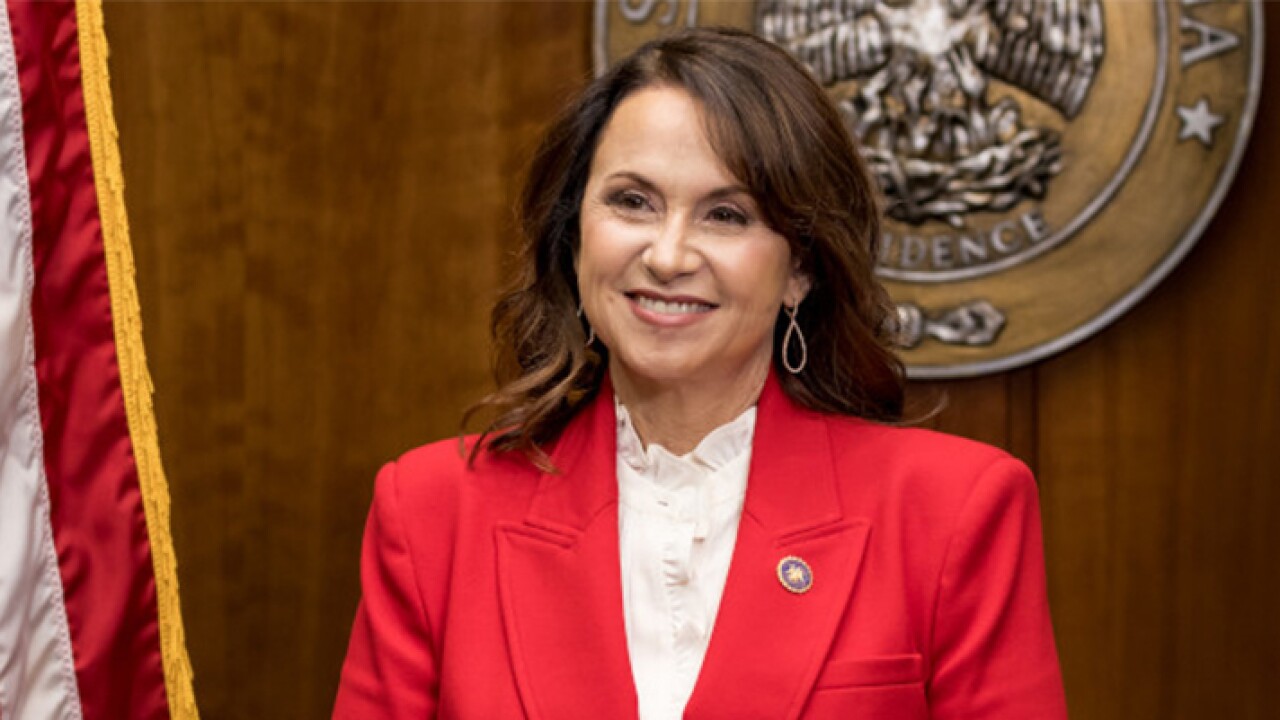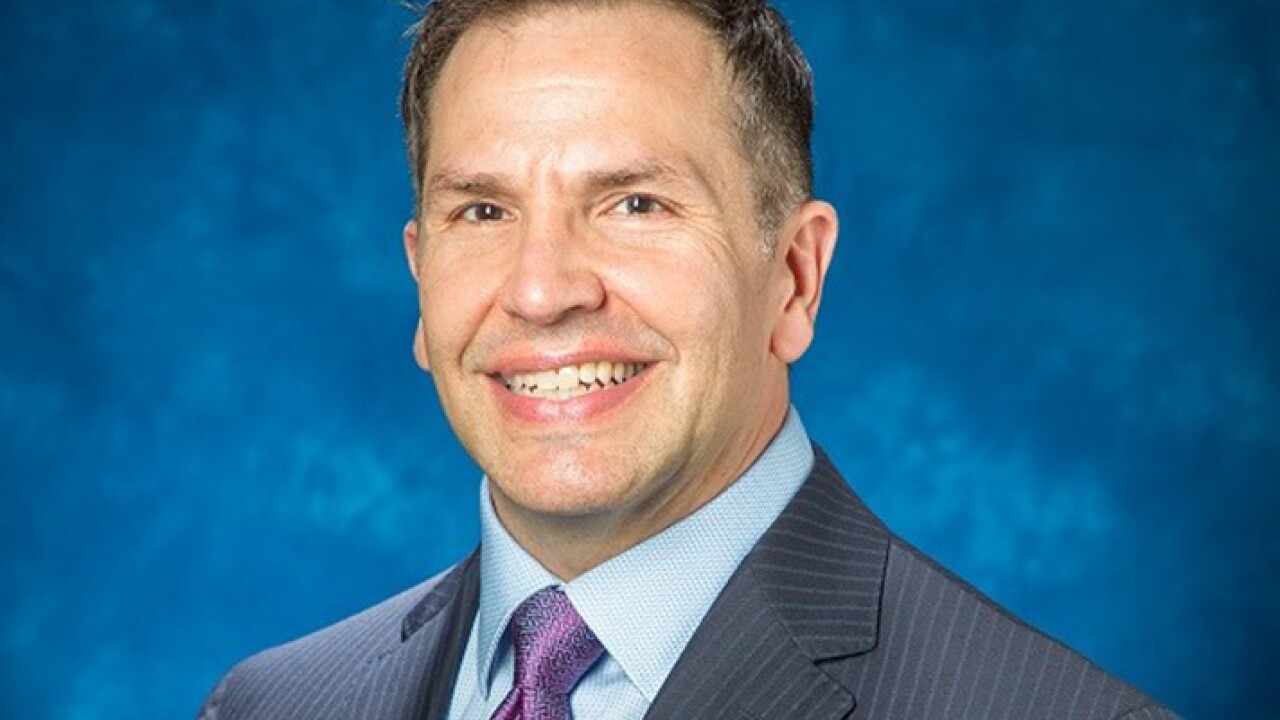
CHICAGO – Illinois' 18-month-old state budget deadlock showed little sign of easing Wednesday as Gov. Bruce Rauner delivered his third State of State address with Senate leaders struggling to build support for a bipartisan solution and House Democrats renewing their attacks on the governor's agenda.
Without specifically mentioning the so-called "Grand Bargain" package being pursued by Senate leaders – Democratic President John Cullerton and Republican Minority Leader Christine Radogno -- Rauner praised them for their efforts to break the budget stalemate.
He urged them not to "give up" amid an onslaught of special interest critics. Some, however, have questioned Rauner's support.
"It's heartening to see the Senate coming together on a bipartisan basis to acknowledge these changes are needed. Let's build on that cooperation to achieve a truly balanced budget and changes that really move the needle on job creation and property tax relief," Rauner said in his speech
"Please don't give up. Please keep working. Please keep trying. The people of Illinois need you to succeed," Rauner said, breaking from his prepared speech.
Rauner highlighted what he considered achievements that have been buried under the headlines of political gridlock, including increased spending on kindergarten through 12 grade education, improved management of the Medicaid program, and progress on government consolidation, regulatory reforms and other business-friendly measures.
The budget impasse remains the state's albatross but Rauner said he's enthusiastic about the state's prospects and that the impasse can be resolved with bipartisan cooperation.
"We haven't had a full year budget of some kind in a year-and-a-half – and we haven't had a state budget that is truly balanced in decades. We have more than $11 billion in unpaid bills, a $130 billion unfunded pension liability, and the worst credit rating in the nation," he said.
"To break the impasse, both sides must respect each other's priorities. That means negotiate, compromise," he said. Rauner wants lawmakers to adopt tort reforms and overhaul worker's compensation rules and local government property relief accompanied with collective bargaining changes to improve the business climate as part of a bigger fix for the state's economy.
He reiterated his call for lawmakers to send term limits and redistricting reforms to voters.
His agenda items and refusal to support a tax increase unless Democratic lawmakers relax their opposition to some of the items has driven the budget impasse.
He also called on lawmakers to approve a resolution needed for the state to pursue a public-private partnership for the installation of managed lanes on an interstate highway, calling transportation investment critical to the state's efforts at job creation.
All lawmakers "have a moral obligation to work together to bring change," he said. "Our state's economy could take off like a rocket ship if we could just come together on major pro-jobs changes that need legislation to take effect."
Cullerton offered a measured response to the speech.
"The Senate is well aware of the state of our state. That's why we are working together to put an end to the budget impasse and restore economic stability to Illinois," he said. "Our efforts continue in the Senate to turn this around and I remain optimistic that we are near an agreement."
Cullerton and Radogno were meeting with their caucuses Wednesday afternoon but no votes were expected on the "Grand Bargain" package of bills. Committee hearings were held Tuesday on the revenue package, pension reforms, and other pieces of the legislation while an expansion of gambling was heard Wednesday.
The leaders earlier this week had been aiming for floor vote on Wednesday but backed off from that goal amid divergent interests and opposition from some groups that led to questions over how many Republicans would support the package.
The Senate remains in session Thursday but will be out next week, returning the following week. Fitch Ratings has warned the state that a downgrade looms by the end of the month without progress on tackling its fiscal ills.
The package of bills would fund government through fiscal 2017 ending June 30; raise more than $6 billion in new taxes; authorize $7 billion of borrowing to pay down the state's $11 billion bill backlog; offer pension reforms; expand gambling; pave the way for local government consolidation; implement procurement and worker's compensation reforms; and create a local property tax freeze.
It would also provide teachers' pension funding help for the Chicago Public Schools.
House Democrats said if the package makes it to their chamber the proposals will be reviewed, but Madigan's statement after the State of the State address made clear that he remains deeply opposed to Rauner's agenda.
We can agree "that Illinois must take serious steps to improve our business climate and create new job opportunities," he said in a statement. "But House Democrats reject the idea that the only way to create jobs in Illinois is to cut wages and strip away workplace protections in order to pad the profits of big corporations. Instead, we will work to advance an agenda of positive economic reforms that improve the business climate without hurting the middle class.
In one bit of formal action Wednesday, the Senate approved Chicago's overhaul of its municipal and laborers' pension funds in a 38-to-11 vote. The legislation is identical to a bill that was recently passed by the previous legislature and faces a possible Rauner veto.
The new legislation was needed because lawmakers can't attempt to override a veto of legislation passed by the prior legislature. The bill now heads to the House where Republican support is more crucial. Democrats hold a veto-proof majority in the Senate but not the House. The previous bill passed with strong bipartisan support in the House.





